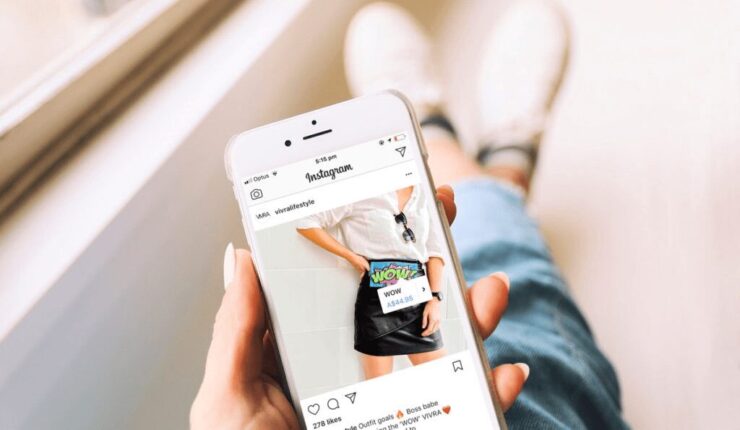Influencer marketing, once a novel concept, has solidified its presence in the digital marketing domain. Brands and influencers alike have crafted a symbiotic relationship that extends far beyond mere endorsements. As audiences crave genuine connections and storytelling, influencer marketing stands at a fascinating crossroads, intersected by burgeoning technology and shifting consumer behavior.
But as we look toward the horizon, several questions emerge: How will emerging technologies alter the landscape of influencer marketing? What trends will dictate the strategies of tomorrow’s marketers? And in a rapidly evolving digital ecosystem, how can one keep pace?
We will explore these queries and more as we unpack the future of influencer marketing through trends and technologies that are poised to redefine this dynamic field.

1. Artificial Intelligence And Predictive Analytics
The integration of Artificial Intelligence (AI) in influencer marketing is more than a futuristic buzzword; it’s a current reality that’s rapidly advancing. AI-powered tools can analyze vast datasets to identify patterns in consumer behavior, predict trends, and even determine the influencer-brand fit, one such tool that marketers might find invaluable is https://justanotherpanel.com/.
Predictive analytics, empowered by AI, can foresee campaign outcomes with impressive accuracy, ensuring that marketers invest in partnerships and content that yield the highest engagement and ROI. Moreover, AI can optimize the match-making process between influencers and brands, ensuring a genuine alignment of values and aesthetics, which is crucial for campaign authenticity.
2. The Rise Of Virtual Influencers
We are witnessing the advent of virtual influencers – CGI-created personas that can engage with real-life audiences. These digital darlings are immune to the pitfalls of human influencers, such as scandal or unpredictability. Brands can tailor virtual influencers to embody the ideal representative for their target audience, managing their messaging down to the last pixel.
The use of virtual influencers is set to expand, offering a level of control and customization that human influencers can’t match. Moreover, as virtual reality and augmented reality technologies advance, the interactions between virtual influencers and audiences will become more immersive, opening new frontiers for influencer marketing.

3. Micro And Nano-Influencers In The Spotlight
The tide is turning towards micro and nano-influencers – those with smaller but highly engaged followings. These influencers often boast higher levels of trust and interaction within their communities. In the future, expect to see a surge in brands partnering with these influencers, leveraging their authenticity to generate a more significant impact.
This shift is not just about numbers; it’s about nurturing a dedicated community. The deep connections these influencers have with their followers can lead to more personal, and ultimately, more effective marketing campaigns.
4. Enhanced Content Personalization Through Tech
In an era where personalization is not just appreciated but expected, advanced technologies are stepping up to transform how content resonates with individuals. The art of personalization in influencer marketing is undergoing a renaissance thanks to machine learning and sophisticated data analytics. These algorithms are more than just tools; they are the artisans of the digital age, crafting experiences that can connect with viewers on an individual level, taking into account their unique preferences and behaviors.
As we venture deeper into the digital ecosystem, machine learning algorithms are being refined to analyze user data with greater precision, thereby enabling influencers to deliver content that aligns with the specific tastes and interests of their followers. For instance, by analyzing engagement data—such as which posts a user likes, comments on, or shares—an influencer can collaborate with brands to create content that aligns with those interests, leading to higher engagement rates and a more profound connection with the audience.
5. Ethical Transparency And Consumer Privacy
With increasing scrutiny on data privacy and ethical marketing, influencers and brands will need to be transparent about their use of data and the nature of their partnerships. Blockchain technology could offer a solution by providing transparent, immutable records of transactions and engagements.
Consumers are more conscious than ever about their digital footprints and the authenticity of influencer promotions. As a result, we’ll see a trend toward more explicit disclosures and an emphasis on ethical marketing practices that respect consumer privacy.

6. Platform Diversification And Omni-channel Strategies
While platforms like Instagram and TikTok currently dominate influencer marketing, the future lies in diversification. Influencers will branch out to emerging platforms to capture audiences that are spread across the digital landscape. An omnichannel approach will be vital, as it will allow for a unified and cohesive marketing message across multiple platforms.
Brands will have to keep pace with influencers as they navigate through various social media platforms, streaming services, and even delve into the metaverse. The influencers who can master omni-channel presence will be the most valuable to brands.
7. Interactive And Shoppable Content
The bridge between influencer content and e-commerce is shortening with the rise of interactive and shoppable content. Platforms are introducing features that allow users to make purchases without leaving the app, and this trend is set to grow.
Influencers will be able to tag products in their posts, stories, and videos, turning their content into a direct sales channel. This seamless integration of marketing and commerce will not only drive sales but also provide valuable data on consumer preferences and behavior.

In Conclusion
The horizon of influencer marketing is dynamic, driven by technological innovation and a deepening understanding of the consumer psyche. As we venture further into this digital age, the interplay between emerging technologies and marketing strategies will become more nuanced and complex.
The future promises a more personalized, immersive, and ethical approach to influencer marketing. Brands and influencers who can harness these trends and technologies will reap the rewards of deeper audience connections and more compelling campaigns.
But in this ever-evolving landscape, one truth remains constant: authenticity will never go out of style. As we embrace these advancements, let’s not forget the human touch that forms the heart of influencer marketing. After all, at the core of every trend and technology lies the timeless power of human connection.

